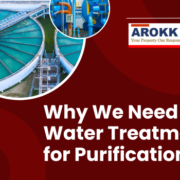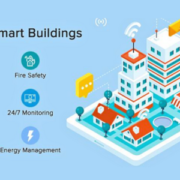Achieve Better Safety with Facility Management in Chennai
/0 Comments/in Facility Management/by Arokk Integreted Management Services Pvt. Ltd.In today’s fast-paced business environment, the importance of maintaining an efficient and secure workplace cannot be overstated. Facility management has evolved from basic maintenance tasks to becoming a strategic component that significantly impacts the productivity, safety, and operational efficiency of organisations across industries.
Whether it’s maintaining building systems, ensuring cleanliness, or managing security, facility management plays a vital role in the smooth running of any business. If you are looking for a reliable facility management company in Chennai, you’re making a strategic decision that can help enhance your operations and ensure the safety and well-being of your employees and assets.
What is Facility Management?
Facility management encompasses a wide range of services that are designed to support the functionality, safety, and sustainability of buildings and infrastructure. It includes the management of both hard services (such as electrical, plumbing, and HVAC systems) and soft services (such as cleaning, security, and waste management). Facility management ensures that the physical environment remains conducive to the productivity and well-being of employees, customers, and visitors.
Facility managers work behind the scenes to ensure that everything from office space to industrial machinery runs smoothly. They manage energy consumption, coordinate with service providers, handle emergency situations, and ensure compliance with health and safety regulations. Ultimately, their goal is to optimize both the functionality and efficiency of a business’s physical infrastructure.
Key Functions of Facility Management
Facility management services are crucial for both small businesses and large industries, and they include several key functions that ensure the seamless operation of physical assets. Below are some of the core functions:
1. Building Maintenance
One of the most essential functions of facility management is the upkeep of buildings and their systems. This includes everything from routine maintenance of HVAC systems, electrical wiring, plumbing, and elevators, to larger issues like structural integrity and repairs. Regular building maintenance ensures that systems are functioning optimally and helps to avoid costly breakdowns.
2. Safety and Security
Facility management also plays a pivotal role in ensuring the safety and security of the workplace. This includes managing surveillance systems, security personnel, fire safety protocols, and emergency response procedures. Facility managers are responsible for developing evacuation plans, conducting regular safety drills, and ensuring that the business complies with all safety regulations.
3. Energy Management
Energy efficiency is a growing concern for businesses today, and facility managers are at the forefront of reducing energy consumption. By implementing energy-efficient systems and practices, facility managers can significantly reduce a company’s carbon footprint and operational costs. This can involve optimizing HVAC systems, installing energy-efficient lighting, and utilizing renewable energy sources.
4. Space Management
Efficient use of space is another critical aspect of facility management. Facility managers work to ensure that office layouts are optimized for productivity and collaboration while meeting the health and safety needs of employees. This can involve reconfiguring spaces, implementing flexible work environments, and ensuring that the workplace is ergonomically sound.
5. Sustainability Initiatives
Sustainability is a growing priority for many businesses, and facility management can play a key role in achieving sustainability goals. This includes everything from waste management and recycling programs to energy-efficient building practices and water conservation measures. A sustainable facility not only reduces operational costs but also helps businesses align with environmental standards and corporate social responsibility goals.
6. Vendor Management
Facility management also involves overseeing third-party service providers and vendors who offer specialized services like cleaning, landscaping, pest control, and repairs. Facility managers ensure that vendors are meeting contractual obligations, providing quality services, and adhering to safety regulations.
The Role of Technology in Facility Management
Technology has transformed the way facility management services are delivered. The integration of technology into facility management allows businesses to streamline operations, reduce costs, and enhance overall efficiency. Below are some of the ways technology is playing a crucial role in modern facility management:
1. IoT and Smart Building Systems
The Internet of Things (IoT) has revolutionized facility management by allowing for the automation and monitoring of various systems within a building. IoT-enabled devices can control lighting, HVAC systems, security cameras, and more, enabling facility managers to monitor and manage these systems remotely. Smart building technologies can detect issues before they become critical and optimize energy usage, reducing both costs and environmental impact.
2. Computer-Aided Facility Management (CAFM) Systems
CAFM software helps facility managers track and manage various aspects of facility operations, from maintenance schedules to space utilization and vendor contracts. This software allows for more efficient management of resources and helps ensure compliance with safety and regulatory standards.
3. Building Information Modeling (BIM)
BIM technology allows for the digital representation of a building’s physical and functional characteristics. This technology is invaluable for facility managers when it comes to planning renovations, managing energy efficiency, and improving overall space utilization.
4. Energy Management Systems (EMS)
EMS software helps facility managers monitor and control energy usage throughout a building. This technology provides real-time data on energy consumption, allowing managers to identify inefficiencies and implement energy-saving strategies.
Benefits of Facility Management Across Industries
Facility management is not a one-size-fits-all solution; its services are tailored to meet the specific needs of different industries. Below are some of the key benefits of facility management across various sectors:
1. Corporate Offices
In corporate settings, facility management ensures that offices are well-maintained, safe, and conducive to productivity. From managing HVAC systems to ensuring cleanliness, facility management services create a comfortable and efficient work environment.
2. Manufacturing and Industrial Facilities
In industrial settings, facility management takes on the added responsibility of maintaining complex machinery and ensuring that health and safety regulations are strictly followed. Proper facility management in industrial environments ensures smooth operations, minimizes downtime, and reduces the risk of accidents.
3. Healthcare Facilities
In healthcare settings, facility management is critical for maintaining clean, safe, and sterile environments. It involves everything from waste management and cleaning services to the maintenance of critical equipment like HVAC systems and electrical generators.
4. Educational Institutions
Facility management in schools, colleges, and universities ensures that educational institutions are safe, clean, and properly equipped. Facility managers also oversee the maintenance of buildings, the setup of learning spaces, and the coordination of safety protocols.
5. Retail and Hospitality
In retail and hospitality, facility management plays a key role in ensuring a positive customer experience. From ensuring that lighting and HVAC systems are functioning optimally to managing cleanliness and safety, facility management services are critical to the smooth operation of these customer-facing industries.
The Growing Importance of Sustainability in Facility Management
Sustainability is no longer a choice but a necessity for businesses looking to minimize their environmental impact and meet regulatory requirements. Facility management can be a key driver of sustainability initiatives through energy management, waste reduction, and sustainable building practices. Here are a few ways sustainability is being integrated into facility management:
1. Energy-Efficient Buildings
Energy-efficient buildings reduce operational costs and minimize the environmental impact of a business. Facility managers play a crucial role in optimizing energy usage by installing energy-efficient systems, utilizing renewable energy sources, and implementing smart building technologies.
2. Waste Management and Recycling
Proper waste management is critical for businesses that want to reduce their environmental impact. Facility management services can implement comprehensive recycling programs and work with waste disposal companies to ensure that waste is handled responsibly.
3. Water Conservation
Water conservation measures can help businesses save on costs and reduce their environmental footprint. Facility managers can implement water-saving technologies and ensure that water usage is optimized through maintenance and monitoring of plumbing systems.
Conclusion
Facility management has become an indispensable service for businesses across all sectors. From maintaining building systems to ensuring workplace safety and sustainability, facility management helps organizations run smoothly and efficiently. In a competitive business landscape, partnering with a professional facility management company in Chennai can provide your business with the strategic support it needs to thrive.
By leveraging modern technology, optimizing energy usage, and implementing sustainability practices, facility management can enhance both the efficiency and safety of your workplace. As businesses continue to evolve, the role of facility management will only grow in importance, making it a crucial investment for the future.
When choosing a facility company in Chennai, consider one that not only meets your immediate needs but also offers long-term solutions that align with your growth and sustainability goals.






